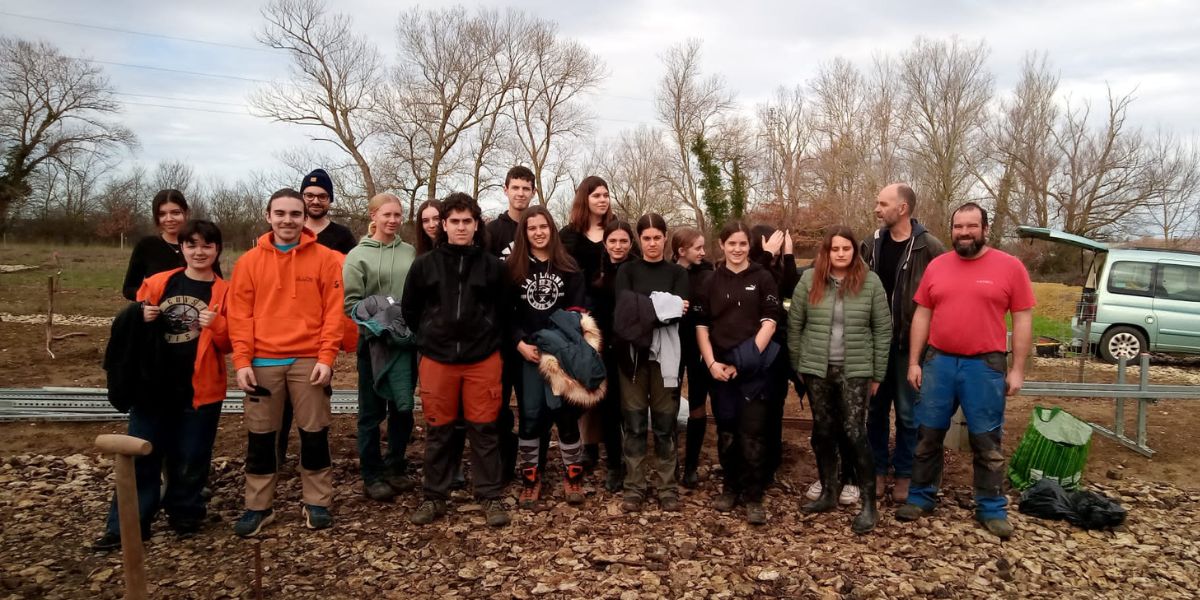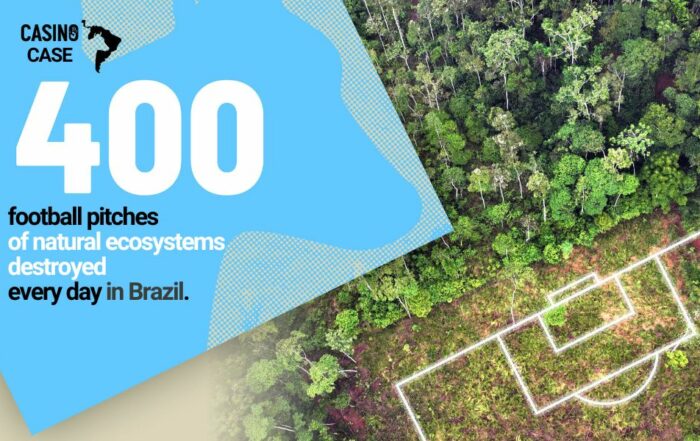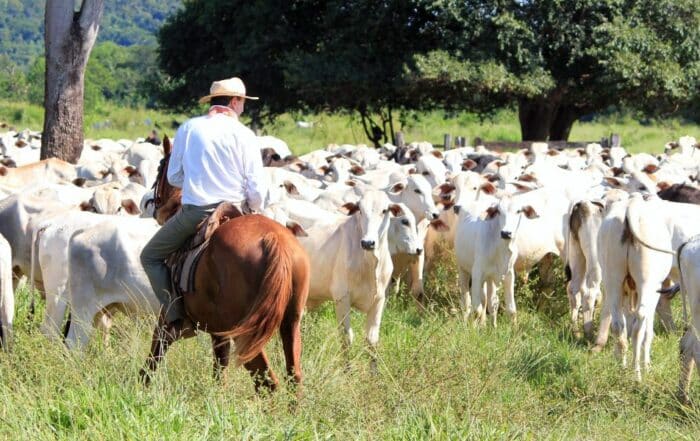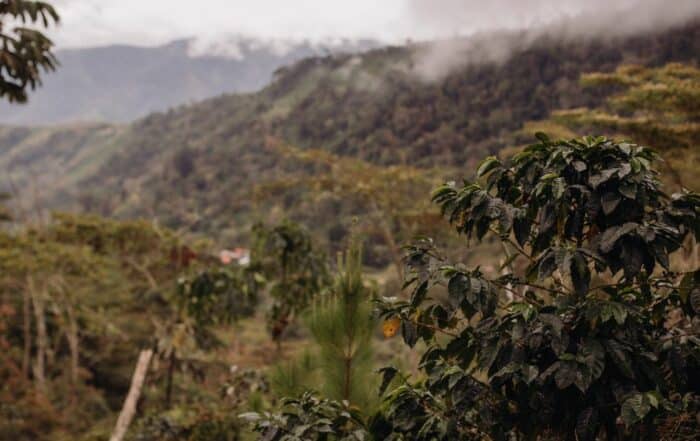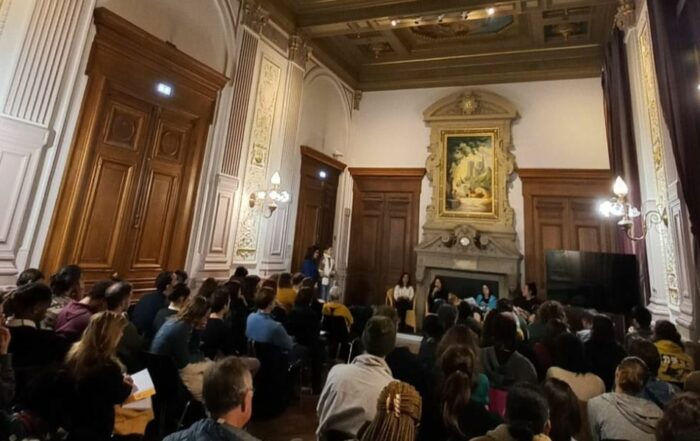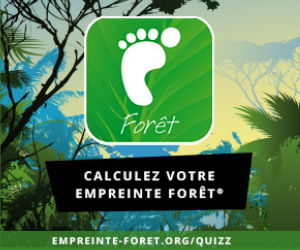The story of an educational project in partnership with the Lycée agricole de Touscayrat and Au Pré de Mes Arbres (Next to my trees) program of Envol Vert.
Our story begins on 17 January on the planting plot of Éric Thuriès, a beekeeper based in Revel. That morning, the 16 students in the second year of secondary school at the Lycée Agricole de Touscayrat came to help with the planting to create his agroforestry system, which will provide diversified fruit production and serve as a wintering station for his bee colonies.
A fortnight later, back in the classroom for a session led by Axel on deforestation in Latin America. No connection? Not so sure! Because at the roots of our food, we find… trees!
Every year, millions of hectares of forest disappear around the world. The main cause in Latin America is agriculture and livestock farming. Pupils will discover a real case of deforestation in Brazil, where soya fields are gradually taking the place of the Amazon and Cerrado forests.
Why so much soya? For export to industrial livestock farms in Europe, where it is used extensively in silage rations, and the more intensive the livestock farming model, the greater the use of soya.
How can we detect the deforestation lurking in our food? With Envol Vert’s Super Bosquet! This animated tool enables pupils to assess the impact of many everyday consumer products on forests by identifying the raw materials they are made from that are at risk of deforestation: cocoa, coffee, palm oil and, of course, soya. After an initial session run by Axel for school pupils, it’s their turn to run the session for two classes of fourth form students from their school.
If deforestation is at the root of what we eat, can trees also be the solution? In Latin America, agroforestry systems are a solution for reconciling food-producing and commercial agriculture with woodland cover. James, a Colombian volunteer doing civic service in France after studying to be an agricultural engineer, is here to talk to the students about this in person, and in Spanish!
‘And in France, can trees and agroforestry play a role in limiting our dependence on imported soya?’ asks Loïc Edline, the professor of agro-ecology who is spearheading the project with Envol Vert. Find out in the next episode!
The project ‘At the roots of our food – trees!’ is an educational project run by the Touscayrat LAP and Envol Vert as part of the Tandems Solidaires scheme run by Occitanie Coopération and funded by the Agence Française de Développement.
The story of an educational project in partnership with the Lycée agricole de Touscayrat and Au Pré de Mes Arbres (Next to my trees) program of Envol Vert.
Our story begins on 17 January on the planting plot of Éric Thuriès, a beekeeper based in Revel. That morning, the 16 students in the second year of secondary school at the Lycée Agricole de Touscayrat came to help with the planting to create his agroforestry system, which will provide diversified fruit production and serve as a wintering station for his bee colonies.
A fortnight later, back in the classroom for a session led by Axel on deforestation in Latin America. No connection? Not so sure! Because at the roots of our food, we find… trees!
Every year, millions of hectares of forest disappear around the world. The main cause in Latin America is agriculture and livestock farming. Pupils will discover a real case of deforestation in Brazil, where soya fields are gradually taking the place of the Amazon and Cerrado forests.
Why so much soya? For export to industrial livestock farms in Europe, where it is used extensively in silage rations, and the more intensive the livestock farming model, the greater the use of soya.
How can we detect the deforestation lurking in our food? With Envol Vert’s Super Bosquet! This animated tool enables pupils to assess the impact of many everyday consumer products on forests by identifying the raw materials they are made from that are at risk of deforestation: cocoa, coffee, palm oil and, of course, soya. After an initial session run by Axel for school pupils, it’s their turn to run the session for two classes of fourth form students from their school.
If deforestation is at the root of what we eat, can trees also be the solution? In Latin America, agroforestry systems are a solution for reconciling food-producing and commercial agriculture with woodland cover. James, a Colombian volunteer doing civic service in France after studying to be an agricultural engineer, is here to talk to the students about this in person, and in Spanish!
‘And in France, can trees and agroforestry play a role in limiting our dependence on imported soya?’ asks Loïc Edline, the professor of agro-ecology who is spearheading the project with Envol Vert. Find out in the next episode!
The project ‘At the roots of our food – trees!’ is an educational project run by the Touscayrat LAP and Envol Vert as part of the Tandems Solidaires scheme run by Occitanie Coopération and funded by the Agence Française de Développement.

